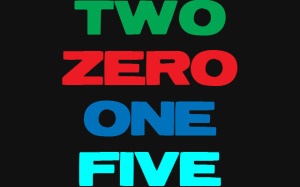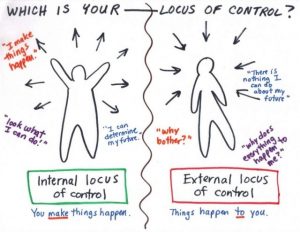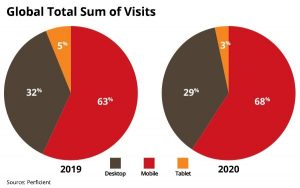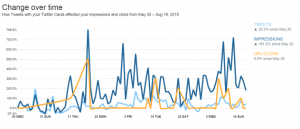
Exact match and broad match are the Olsen twins of PPC advertising. While both are match types, how they match is as different as night and day.
Exact match tells your network to only recognize your exact keywords, ignoring any other variations. In contrast, broad match does the complete opposite: it welcomes all variations of your keywords. Depending on your PPC campaign needs, one may work better than the other.
Knowing the benefits and drawbacks for each will aid you in choosing the right one. Here’s some tips on how to use exact match and broad match.
What’s Keyword Matching?
Think of keyword matching as casting a net into the ocean. A large net (broad match) increases your chances of catching many fish, while a smaller net (exact match) catches less. However, less isn’t necessarily bad. In fact, the quality of fish will be much higher (more on that in a sec).
Here’s how it works.

So which method is better for your PPC campaign? Well, it depends.
How Broad Match Works
With broad match, your ad for pumpkin spice latte will automatically run on relevant variations of your keywords. In fact, it will even run if those keyword variations (PSL, spice latte, etc.) aren’t on your keyword lists.

Pros: Using broad match will undoubtedly get your ad the most views. And there are other valuable benefits to using broad match such as:
- Spending less time building keyword lists.
- Paying only for keywords that work.
- Discovering useful broad-matched keywords and phrases search engines consider relevant.
Cons: Despite generating lots of impressions, not all of them will turn into clicks and conversions, namely due to irrelevant traffic.
Here, Coach is selling a purple-hued Edie shoulder bag. When a customer searches for purple purses, Coach’s product appears as part of the search results.

Although broad match will get Coach lots of views, that may not be a good thing. By casting such a wide net, Coach isn’t necessarily hitting its target demographic (e.g. mid-twenties/early-thirties trendy women who like expensive purple purses.) Coach will likely end up paying for clicks with no ROI.
Coach could use negative keywords to fix this, or ditch broad match for exact match instead.
How Exact Match Works
Exact match is the most targeted option, limiting who sees your ad to only those customers searching for your exact keywords, and only those exact keywords (e.g. Campbell’s Soup K-Cup Pod).

Pros: It has a higher click-through rate because it targets people who are further into the buyer’s journey; those individuals who are specifically looking for your product.
Advertisers like exact match because it’s easy to optimize an account. They know what users are typing in and don’t have to use negative keywords.
Cons: On the flipside, exact match costs more money. No one wants to pay the highest cost per click when clicks and impressions will be limited.
For instance, perhaps you’re selling tennis shoes but have two versions: men and women’s. If your only keyword is “tennis shoes,” exact match will exclude any searches for men’s or women’s tennis shoes, causing you to miss the long-tail of the search. If you want these queries to be included, you’ll have to add their exact keyword matches to your list manually.
Other Options
Sometimes your campaign may need something in the middle. Lucky for you, there are more options for you to consider.
When broad match is a little too broad, consider using broad match modifiers. By adding a (+) to any of your keyword terms, your ads will only appear when a user’s search includes that modified term.

Modified terms will tighten the broadness of your keyword scope.
If you’re finding exact match is too specific, try using phrase match to loosen up your search. With phrase match, your ad will appear whenever someone’s search includes your exact phrase. Variations of your phrase are included (plural, possessive form, etc.) but synonyms are not.

Conclusion
Exact match and broad match both have pros and cons. Carefully weigh your campaign needs to determine which will work best for you. Also keep in mind that Google AdWords discontinued exact match and replaced it with close variant keyword matching. So if you plan to use AdWords, broad match might be your best bet. Once you decide which method is best for you, go forth and boost your PPC campaign!
Digital & Social Articles on Business 2 Community(101)
Report Post







